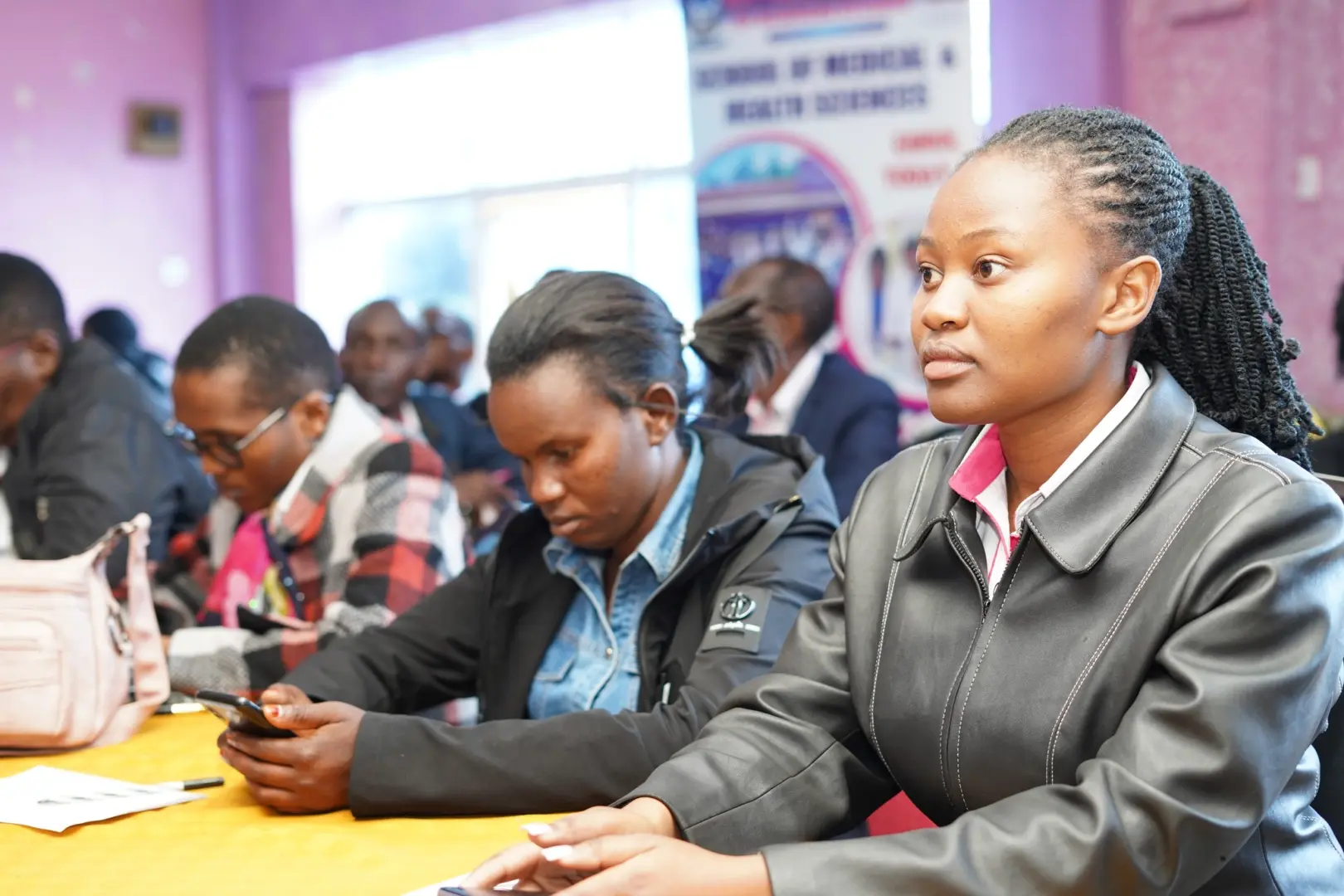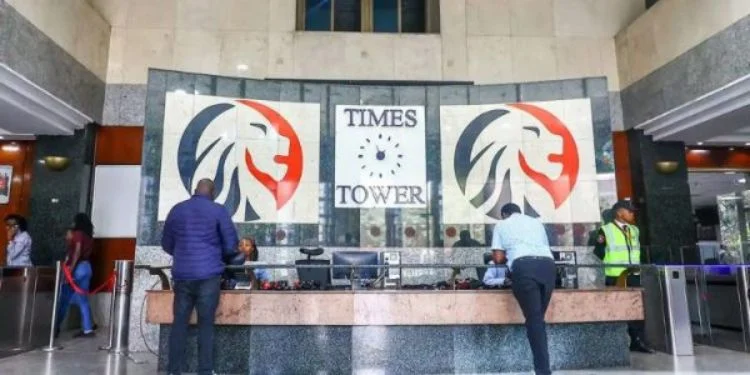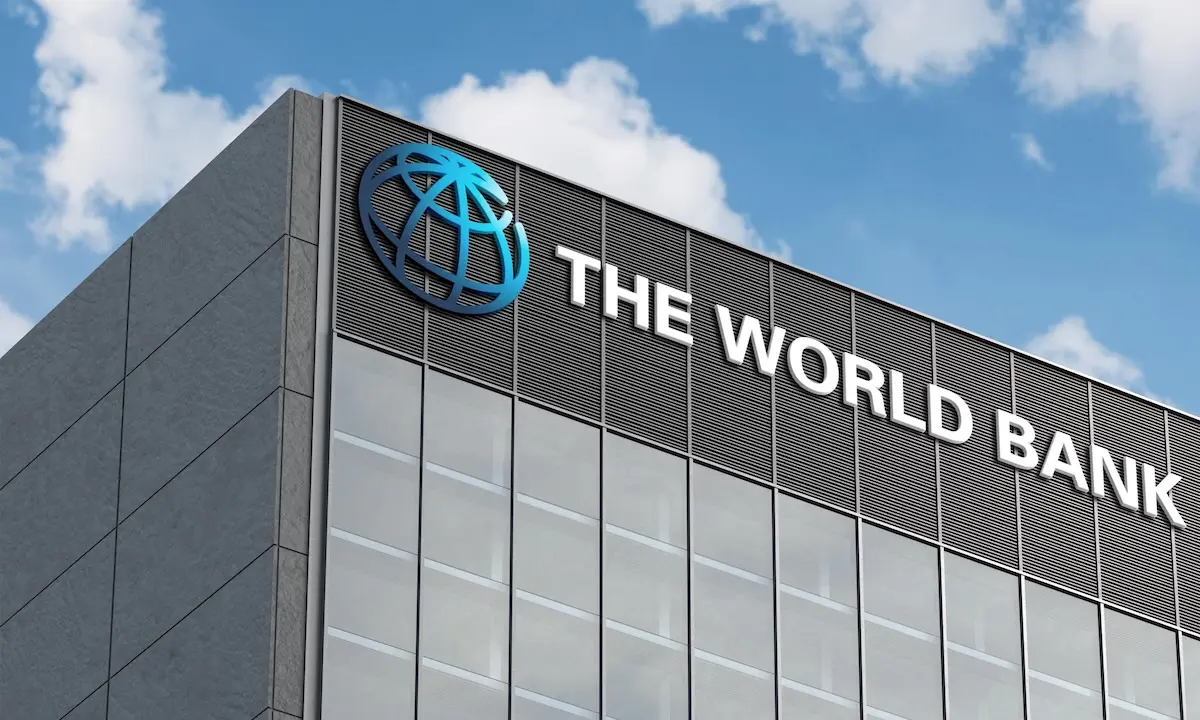In a significant boost to Kenya’s Technical and Vocational Education Training (TVET) sector, a German-based organization, Chancen International (CI), has announced a pioneering initiative to provide comprehensive tuition fee funding for 6,000 students across the country. This strategic intervention, revealed on June 23, 2025, aims to dismantle financial barriers, ensuring that vulnerable and low-income students can access and successfully complete their vital vocational education, ultimately contributing to Kenya’s economic growth and youth employment.
The initiative, which includes 3,000 students from the Rift Valley Institute of Business Studies (RVIBS) in Nakuru, represents a forward-thinking approach to education financing. It’s designed not only to alleviate the immediate financial burden on students but also to foster a more inclusive and accessible education system that directly aligns with market demands.
Income Share Agreements (ISAs): A Transformative Funding Model
At the core of Chancen International’s (CI) impactful funding model lies the innovative concept of Income Share Agreements (ISAs). This mechanism stands in stark contrast to traditional student loans, offering a more flexible and equitable pathway to education for underserved youth.
How ISAs Work: A Deep Dive into Flexibility and Fairness
As explained by Ms. Gladys Mutisya, CI’s Country Director for Kenya, the ISA model allows TVET students to access education without the burden of upfront tuition fees. The fundamental principle is remarkably simple yet profound: repayments are based on a predetermined percentage of their future income, but only after graduation and only once they secure an income-generating activity or employment.
Ms. Mutisya emphasized the “fair and ethical” nature of this approach:
- No Repayment Without Income: “If a student is not in employment, they are not required to make a repayment.” This crucial clause provides a safety net, eliminating the stress and potential debt spiral associated with traditional loans during periods of unemployment or underemployment.
- No Interest Charged: Unlike conventional loans that accrue interest regardless of the borrower’s financial standing, ISAs from Chancen International are explicitly non-interest bearing. “There is no interest charged. Our main interest is to improve the livelihoods of Kenyans,” Ms. Mutisya clarified. This ethical stance ensures that the cost of education remains manageable and truly linked to a student’s ability to pay.
- Manageable Repayment Structure: Repayments are structured as a percentage of income, ensuring they are “manageable and affordable.” This means that individuals earning less will repay a smaller amount, while those with higher incomes will contribute more, but always within a sustainable proportion of their earnings.
- Minimum Income Threshold: To further protect beneficiaries’ basic needs, “There’s a minimum income threshold to protect basic needs, and repayments are paused if a graduate’s income falls below this threshold.” This critical feature ensures that graduates are not forced into financial hardship to meet repayment obligations, allowing them to focus on stabilizing their careers.
- Flexible Repayment Periods: The contract period for repayment typically ranges from three to ten years, adjusted based on income volumes. This flexibility accommodates varied career paths and income trajectories, making the model adaptable to real-world economic conditions.
ISA vs. Traditional Loans: Why This Matters for Vulnerable Students
The distinction between ISAs and traditional loans is particularly significant for students from vulnerable or low-income backgrounds in Kenya. Traditional student loans often come with fixed monthly payments that can become an onerous burden, especially in an uncertain job market or for graduates who might initially secure lower-paying jobs. The fear of accumulating debt before even starting a career can be a major deterrent for many talented individuals from marginalized groups, pushing them away from higher education.
In Kenya, while government-backed student loan schemes exist (such as those from the Higher Education Loans Board – HELB), they may not always cover the full tuition, or the repayment terms can still pose challenges for graduates in a competitive job market. Commercial bank loans, if available for education, often require collateral or strong credit histories, which are typically out of reach for students from disadvantaged families.
Chancen International’s ISA model directly addresses these systemic barriers. By linking repayment directly to earning capacity, it eliminates the upfront financial risk, making TVET education genuinely accessible to those who need it most. This “skin in the game” approach for the funder also incentivizes CI to ensure that the TVET programs they support are high-quality and directly lead to successful employment outcomes, as their returns are tied to the graduates’ future success.
The Pivotal Role of TVET in Kenya’s Development Agenda
The infusion of German funding into Kenya’s TVET sector through Chancen International highlights the critical importance of vocational training for the nation’s socio-economic aspirations. TVET is increasingly recognized globally as a cornerstone of sustainable development, particularly for emerging economies like Kenya.
Addressing Youth Unemployment and Skills Mismatches
Kenya faces a significant challenge with youth unemployment, despite its vibrant and youthful population. A substantial portion of young people graduating from various educational levels struggle to find meaningful employment. This is often attributed to a mismatch between the skills acquired through traditional academic curricula and the practical competencies demanded by industries.
TVET programs are designed to bridge this gap by providing hands-on, practical skills directly relevant to specific sectors of the economy. By focusing on industry-specific competencies, TVET institutions can churn out graduates who are “job-ready” and immediately productive. This contributes directly to reducing unemployment rates and boosting economic productivity.
Driving Economic Transformation and Industrialization
Kenya’s national development blueprint, Vision 2030, aims to transform the country into a newly industrializing, middle-income nation providing a high quality of life for all its citizens. Achieving this vision hinges on a robust and skilled workforce. Sectors such as manufacturing, construction, hospitality, renewable energy, and the burgeoning digital economy all require a steady supply of technically proficient individuals.
- Manufacturing: A thriving manufacturing sector requires skilled technicians, welders, electricians, and mechanics. TVET provides these foundational skills, enabling local industries to grow and compete.
- Construction: Kenya’s infrastructure development boom (roads, railways, housing) demands a large pool of skilled artisans, plumbers, masons, and project supervisors.
- Hospitality and Tourism: As a major tourist destination, Kenya needs well-trained professionals in hospitality management, culinary arts, and customer service.
- Digital Economy: Beyond IT degrees, the digital economy requires practical skills in coding, cybersecurity, data analysis, and digital marketing, all of which can be effectively taught through TVET.
- Green Jobs: With a global shift towards sustainable practices, there’s a growing demand for skills in renewable energy installation, waste management, and environmental conservation. TVET institutions are crucial for training a workforce capable of adapting to and leading the green transition.
By strengthening its TVET sector, Kenya can build the human capital necessary to diversify its economy, attract foreign direct investment, and move up the global value chain.
Government Efforts and Policy Support
Recognizing the strategic importance of TVET, the Kenyan government has initiated various policy reforms and increased funding allocations to the sector. Efforts include upgrading TVET infrastructure, developing relevant curricula, and promoting collaboration between TVET institutions and industries to ensure graduates meet employer needs. Initiatives to make TVET more appealing and reduce the stigma often associated with vocational training are also underway. However, funding gaps and access issues, particularly for the most vulnerable, remain significant challenges that external partners like Chancen International are helping to address.
Chancen International’s Global Footprint and Vision for Kenya
Chancen International’s commitment to Kenya is part of its broader strategic expansion across Africa, reflecting its mission to empower young people through education and skills development.
A Growing Presence Across Africa
Headquartered in Germany, Chancen International has established a strong presence in several African nations, including Rwanda, South Africa, and Ghana, in addition to Kenya. This regional approach allows the organization to leverage its expertise and adapt its ISA model to diverse local contexts, understanding the unique socio-economic challenges and opportunities in each country. Their pan-African experience provides them with valuable insights into the common hurdles faced by young people in accessing quality education and securing sustainable livelihoods across the continent.
Ambitious Goals for Kenya: Financing 25,000 Students by 2029
The scale of Chancen International’s ambition in Kenya is impressive. Ms. Mutisya revealed that the organization aims to finance a total of 25,000 TVET students in Kenya by 2029. This long-term commitment signifies a deep belief in Kenya’s potential and the transformative power of its youth. Achieving this target would have a monumental impact on the country’s workforce, dramatically increasing the number of skilled professionals ready to contribute to various sectors.
Beyond Funding: Empowering Through Financial Literacy
Chancen International’s support extends beyond mere tuition fees. Recognizing that financial literacy is crucial for long-term economic stability, the organization will also offer financial literacy programs to the beneficiaries. These programs are designed to equip students with essential skills to manage their finances effectively, make informed decisions about their education, career planning, and future investments. This holistic approach ensures that students are not only skilled professionals but also financially astute individuals capable of building sustainable livelihoods and contributing to their communities.
Focus on Diversity and Inclusivity
A cornerstone of Chancen International’s program is its strong emphasis on diversity and inclusivity. The organization actively prioritizes students from “vulnerable or low-income backgrounds” and those who face other “financial constraints or other barriers” to education. This commitment is evidenced by the fact that a remarkable 71 percent of targeted beneficiaries come from low-income households. This deliberate focus ensures that the program reaches those who stand to benefit most from access to quality education, directly addressing socio-economic disparities and fostering upward mobility.
The eligibility criteria reflect this inclusive approach: students need to be Kenyan citizens, over 18 years old, and either final-year students or recent graduates from recognized TVET institutions. This ensures that the funding supports individuals who are already committed to vocational training and are on the cusp of entering the workforce.
Strategic Partnerships: The Role of Institutions like RVIBS
The success of Chancen International’s initiative hinges on strong collaborations with reputable TVET institutions across Kenya. The partnership with the Rift Valley Institute of Business Studies (RVIBS) serves as a prime example of such strategic alliances.
Mr. John Gitau, Director of RVIBS, warmly welcomed the funding partnership, acknowledging the profound impact it will have on his students. He noted that “most students, particularly from marginalized groups struggle to pay fees,” confirming the pervasive financial barriers that many aspiring TVET students face. Mr. Gitau highlighted how the ISA model will “incentivize TVET institutions to offer relevant, high-quality programmes that lead to successful employment,” creating a virtuous cycle where institutions are motivated to deliver market-responsive training, knowing that their funding partner’s success is tied to graduate employment outcomes.
The collaboration with institutions like RVIBS, which have a direct understanding of local market needs and the challenges faced by their student populations, is essential for effectively implementing the ISA model and ensuring its relevance. These partnerships enable Chancen International to identify deserving students, tailor its support, and track the progress of beneficiaries, ensuring accountability and impact.
Broader Impact and Future Outlook for Kenya
Chancen International’s investment in Kenya’s TVET sector, powered by the innovative ISA model, promises far-reaching benefits that extend beyond individual students.
Empowering Youth and Fostering Economic Mobility
By removing the significant financial hurdle of tuition fees, the program directly empowers young Kenyans to acquire valuable skills. This, in turn, leads to meaningful employment, fostering economic mobility for individuals and their families. When young people secure stable jobs, they not only improve their own livelihoods but also contribute to household income, poverty reduction, and local economic activity. This ripple effect strengthens communities and builds a more resilient society.
Contribution to Community Development and Economic Growth
As Mr. Gitau observed, by linking repayment to income, ISAs contribute directly to community development and broader economic growth. Successful graduates, earning stable incomes, will contribute to the tax base, stimulate consumption, and potentially even become entrepreneurs themselves, creating more jobs. This model ensures that the success of the individual translates into tangible benefits for the wider community and national economy.
Alignment with Sustainable Development Goals (SDGs)
This initiative is a tangible example of how targeted interventions can contribute to achieving global development objectives. It directly aligns with several United Nations Sustainable Development Goals (SDGs), particularly:
- SDG 4: Quality Education: Ensuring inclusive and equitable quality education and promoting lifelong learning opportunities for all, with a focus on increasing the number of youth and adults who have relevant skills, including technical and vocational skills, for employment, decent jobs, and entrepreneurship.
- SDG 8: Decent Work and Economic Growth: Promoting sustained, inclusive, and sustainable economic growth, full and productive employment, and decent work for all. By equipping youth with in-demand skills, the initiative directly addresses targets related to reducing youth unemployment and promoting formal sector employment.
- SDG 10: Reduced Inequalities: By prioritizing students from low-income and vulnerable backgrounds, the program works towards reducing income inequality and ensuring that everyone has an equal opportunity to participate in and benefit from economic progress.
Potential for Scalability and Replication
The success of Chancen International’s ISA model in Kenya and its other African operations could serve as a powerful proof of concept for other development partners, governments, and philanthropic organizations. If proven sustainable and impactful, ISAs could become a more widely adopted funding mechanism for education in developing countries, offering a viable alternative to traditional loan systems that often perpetuate debt cycles. This could revolutionize access to education, particularly in sectors like TVET that are crucial for economic transformation but often underfunded.
In conclusion, the German funding flowing into Kenya’s TVET sector through Chancen International is a landmark development. It represents not just a financial injection but a strategic investment in human capital, leveraging an innovative and ethical funding model to empower thousands of young Kenyans. This initiative promises to significantly enhance Kenya’s skilled workforce, accelerate its economic diversification, and serve as a beacon for how targeted, socially responsible investment can drive sustainable development across Africa.
Ready to take your career to the next level? Join our dynamic courses: ACCA, HESI A2, ATI TEAS 7 , HESI EXIT , NCLEX – RN and NCLEX – PN, Financial Literacy!🌟 Dive into a world of opportunities and empower yourself for success. Explore more at Serrari Ed and start your exciting journey today! ✨
photo source: Google
By: Montel Kamau
Serrari Financial Analyst
24th June, 2025
Article, Financial and News Disclaimer
The Value of a Financial Advisor
While this article offers valuable insights, it is essential to recognize that personal finance can be highly complex and unique to each individual. A financial advisor provides professional expertise and personalized guidance to help you make well-informed decisions tailored to your specific circumstances and goals.
Beyond offering knowledge, a financial advisor serves as a trusted partner to help you stay disciplined, avoid common pitfalls, and remain focused on your long-term objectives. Their perspective and experience can complement your own efforts, enhancing your financial well-being and ensuring a more confident approach to managing your finances.
Disclaimer: This article is for informational purposes only and does not constitute financial advice. Readers are encouraged to consult a licensed financial advisor to obtain guidance specific to their financial situation.
Article and News Disclaimer
The information provided on www.serrarigroup.com is for general informational purposes only. While we strive to keep the information up to date and accurate, we make no representations or warranties of any kind, express or implied, about the completeness, accuracy, reliability, suitability, or availability with respect to the website or the information, products, services, or related graphics contained on the website for any purpose. Any reliance you place on such information is therefore strictly at your own risk.
www.serrarigroup.com is not responsible for any errors or omissions, or for the results obtained from the use of this information. All information on the website is provided on an as-is basis, with no guarantee of completeness, accuracy, timeliness, or of the results obtained from the use of this information, and without warranty of any kind, express or implied, including but not limited to warranties of performance, merchantability, and fitness for a particular purpose.
In no event will www.serrarigroup.com be liable to you or anyone else for any decision made or action taken in reliance on the information provided on the website or for any consequential, special, or similar damages, even if advised of the possibility of such damages.
The articles, news, and information presented on www.serrarigroup.com reflect the opinions of the respective authors and contributors and do not necessarily represent the views of the website or its management. Any views or opinions expressed are solely those of the individual authors and do not represent the website's views or opinions as a whole.
The content on www.serrarigroup.com may include links to external websites, which are provided for convenience and informational purposes only. We have no control over the nature, content, and availability of those sites. The inclusion of any links does not necessarily imply a recommendation or endorsement of the views expressed within them.
Every effort is made to keep the website up and running smoothly. However, www.serrarigroup.com takes no responsibility for, and will not be liable for, the website being temporarily unavailable due to technical issues beyond our control.
Please note that laws, regulations, and information can change rapidly, and we advise you to conduct further research and seek professional advice when necessary.
By using www.serrarigroup.com, you agree to this disclaimer and its terms. If you do not agree with this disclaimer, please do not use the website.
www.serrarigroup.com, reserves the right to update, modify, or remove any part of this disclaimer without prior notice. It is your responsibility to review this disclaimer periodically for changes.
Serrari Group 2025
















